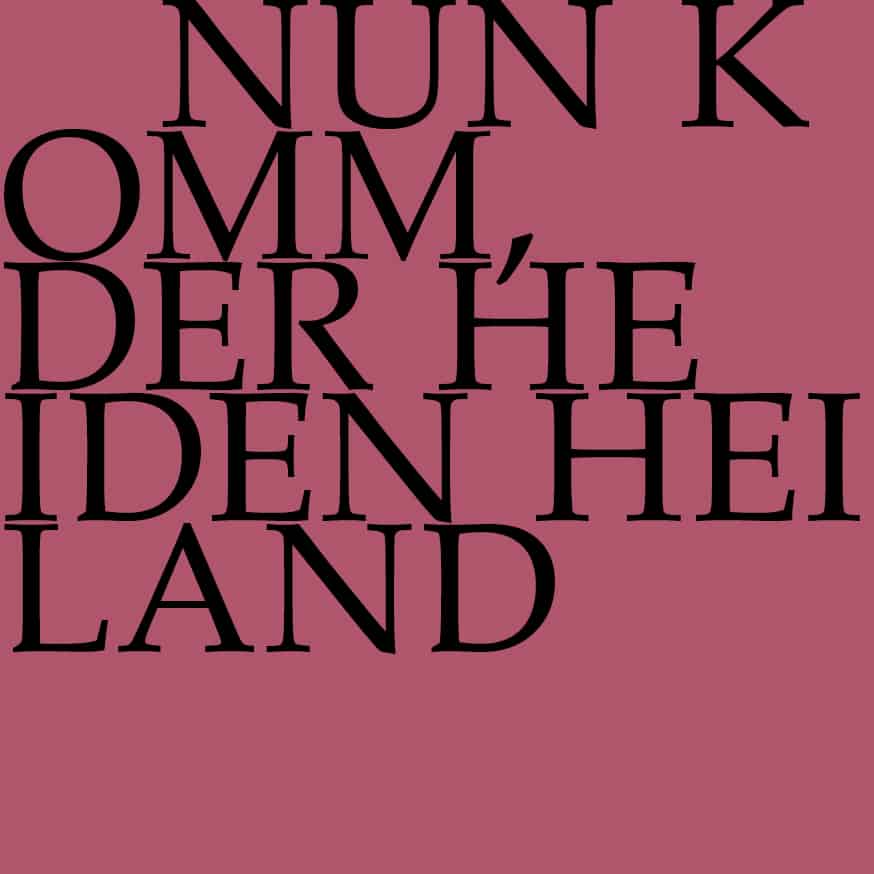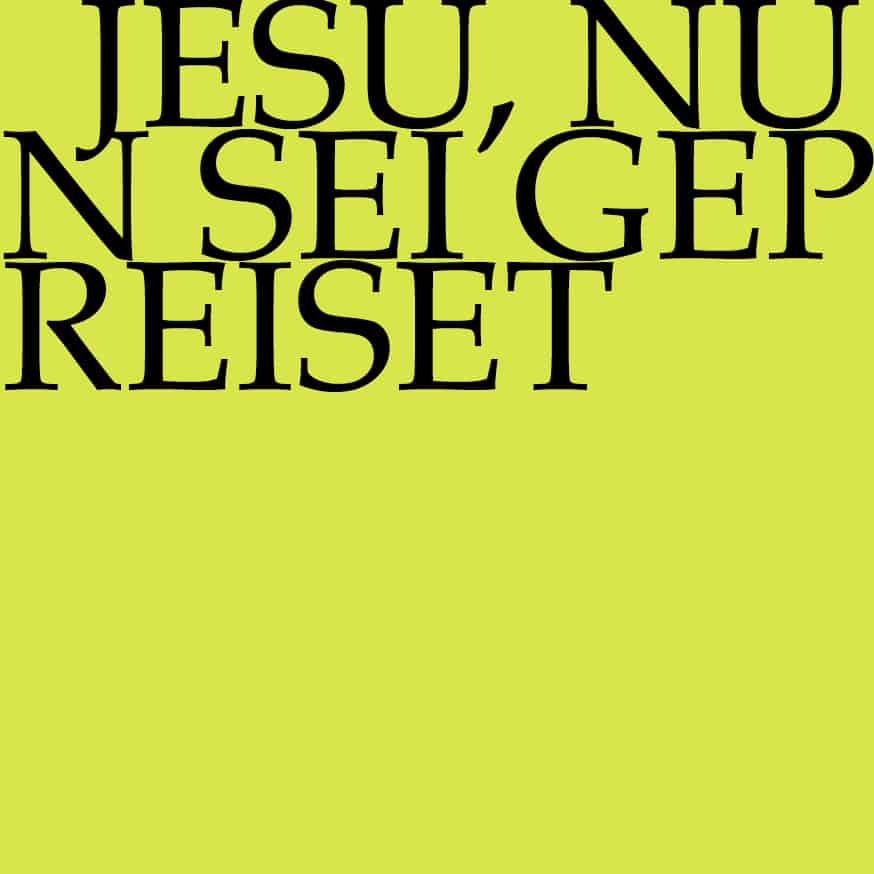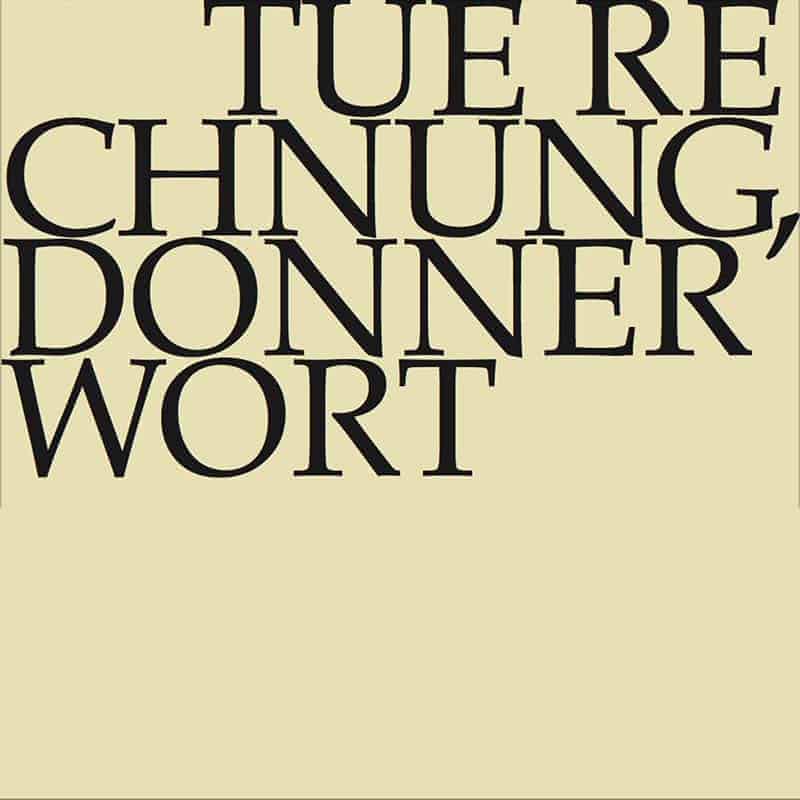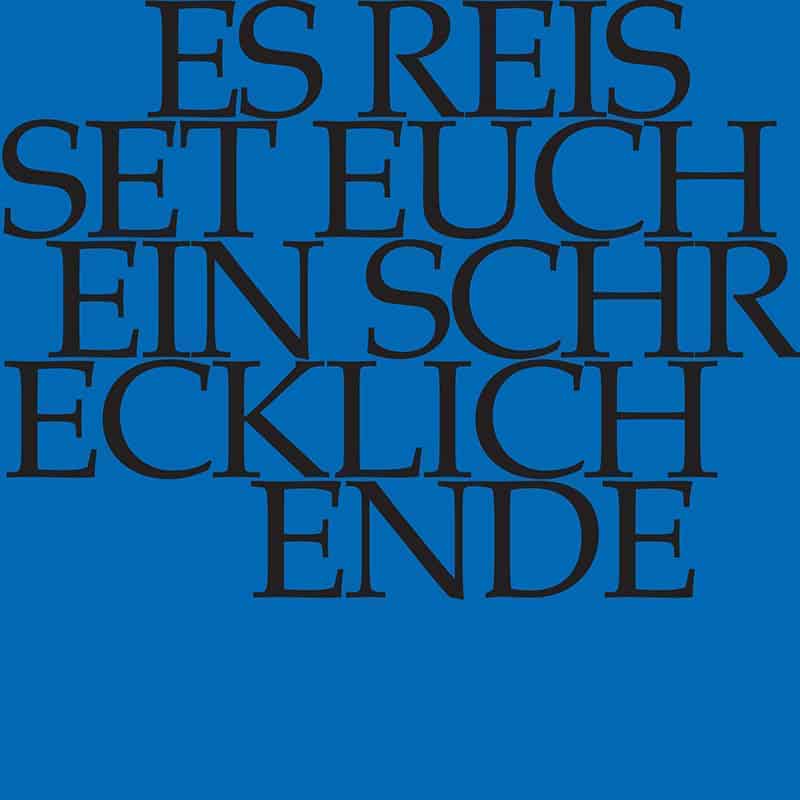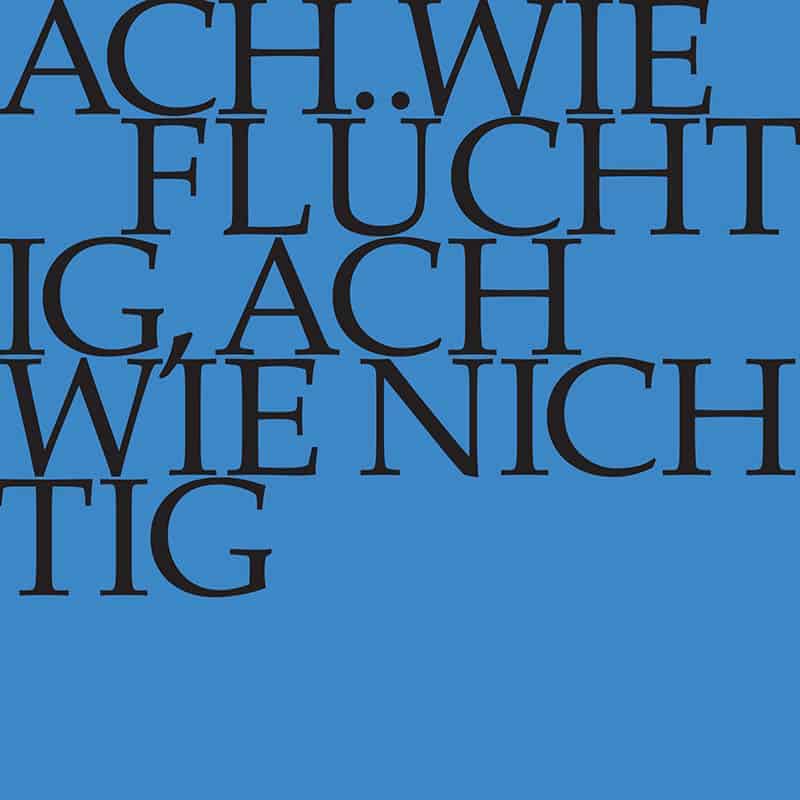(Now come, the gentiles’ Saviour) for soprano, alto, tenor and bass, vocal ensemble, horn, oboe I+II, strings and basso continuo
Archives
Jesu, nun sei gepreiset
(Jesus, be now exalted) for soprano, alto, tenor and bass, vocal ensemble, trumpet I–III, timpani, oboe I–III, strings and basso continuo
Tue Rechnung, Donnerwort
(Make a reck’ning! Thund’rous word) for soprano, alto, tenor and bass, oboe d’amore I+II, bassoon, strings and continuo The cantata “Tue Rechnung! Donnerwort” (Make a reck’ning! Thunderous word), probably performed for the first time in 1725, numbers among Bach’s most dramatic compositions. Indeed, the work adopts an arresting tone from the opening phrase: in a … Read More
Selig ist der Mann, der die Anfechtung erduldet
(Blessed is the man who bears temptation with patience) for soprano and bass, alto and tenor from the vocal ensemble, oboe I+II, oboe da caccia, strings and continuo Fittingly annotated by Bach as a “Concerto in Dialogo”, the cantata “Blessed is the man who bears temptation with patience” (BWV 57) again features a dramatic discussion … Read More
Es reißet euch ein schrecklich Ende
(To ruin you an end of terror) for soprano, alto, tenor and bass, trumpet, strings and continuo It is said that Bach’s musicians had precious little rehearsal time and often sight-read their performances. If this is true, the shock they must have suffered in the dim light of an autumn morning on 14 November 1725 … Read More
Ach wie flüchtig, ach wie nichtig
(Ah, how fleeting, ah, how empty) for alto, tenor and bass, vocal ensemble, horn, flute, oboe I–III, bassoon, strings and continuo. Composed for the Twenty-fourth Sunday after Trinity, the cantata “Ach wie flüchtig, ach wie nichtig” (Ah, how fleeting, ah, how empty) is pervaded by an atmosphere of late autumnal gloom and loss, in which … Read More
Wohl dem, der sich auf seinen Gott
(Blest he who self can to his God) for soprano, alto, tenor and bass, vocal ensemble, oboe d’amore I+II, bassoon, strings and continuo. The introductory choir to the chorale cantata “Wohl dem, der sich auf seinen Gott” (Bless he who self can to his God) demonstrates a particularly distinctive relationship between key, sound character and … Read More


